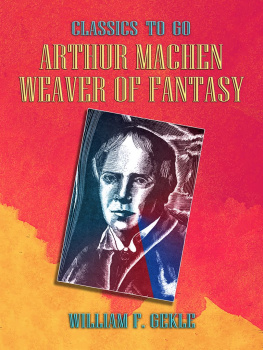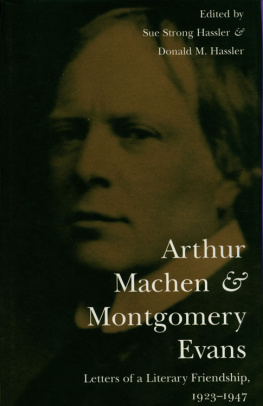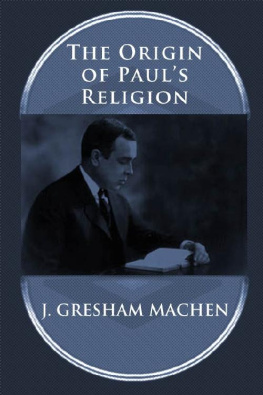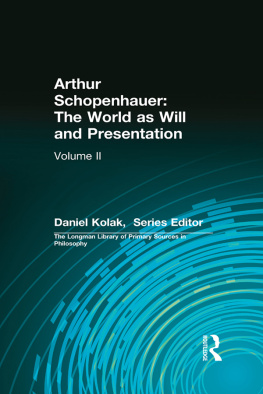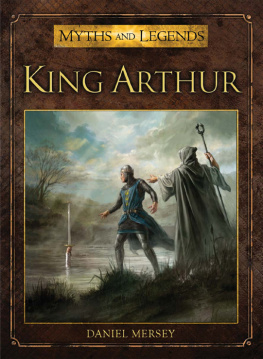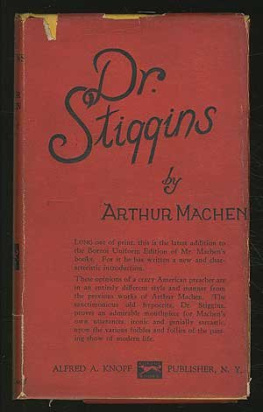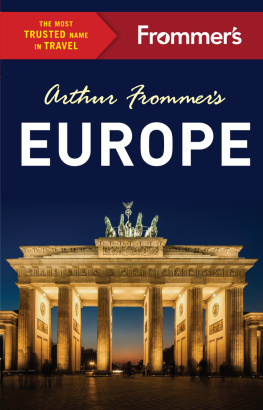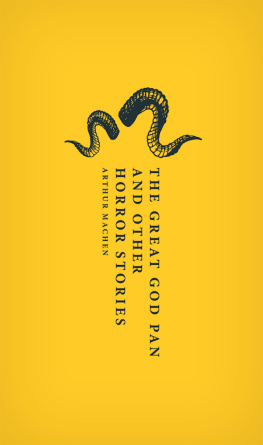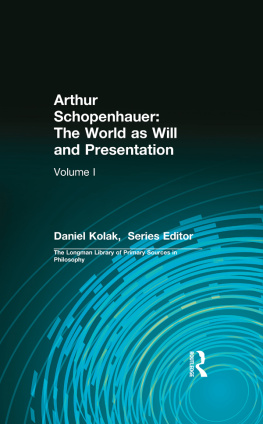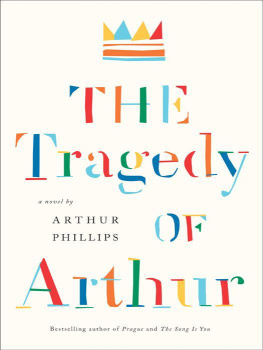Arthur Machen
Weaver of Fantasy
William F. Gekle
PREFACE
It was, I suppose, during the closing months of the First World War that an urbane and witty gentleman, writing in the Confederate city of Richmond, set down these words in the course of one of his interminable, and witty and urbane, monologues: I wonder if you are familiar with that uncanny genius whom the London directory prosaically lists as Arthur Machen?
Since there was no reply, as indeed none was expected, the amiable Charteris chatted on about Arthur Machen and, oddly enough, Robert W. Chambers, for some moments, and then he concluded with this statement.... But here in a secluded library is no place to speak of the thirty years neglect that has been accorded Mr. Arthur Machen; it is the sort of crime that ought to be discussed in the Biblical manner, from the house-top....
That thirty years neglect has almost doubledand indeed one might say with perfect truth that Arthur Machen has suffered a lifetime of neglect, and, in perfect truth, it must be added that the loss has been the worlds which so blindly accorded neglect to the uncanny genius of Arthur Machen.
This is the sort of crime, as Mr. James Branch Cabell suggested back in 1918, that ought to be discussed in the Biblical mannerand it is my intention to do so.
At this point there will be voices raised in protest ... dim voices trained to the librarians whisper, voices that echo in the vaults of university libraries and in the reading rooms of Memorial Collections. There will be other voicesthe amiable, all-inclusive voice of the anthologist and the rasping roar of the reprint editor. There will be the excited exclamations of the cultists and the happy burblings of the bibliographers as they pounce upon another Machen item. And of course we may expect to hear the calm and cultured tones of the collectors, the excavators and the discoverers, who have pointed with smug satisfaction to their rows of faded bindings and their obscure little pamphlets. As for the horror boys, happy with their harpies and hieroglyphs and wild hallucinations, they will probably croak and sibilate in unholy glee and rush down to start their pressesreprinting madly all they can find of the magical tales of that wonderful Welshman, Arthur Machen.
It will appear that I anticipate a renewed interest in the works of Arthur Machen. I do. It may even become apparent that I expect the publication of this book to work the miracleto right the wrong of sixty years of neglect. I do. Nor is this to be attributed to egotism, nor to a vast respect for my powers of persuasion. A number of literary men, of small stature and great, have written well and passionately of Arthur Machen, only to have their effusions produce a magnificent calm. It is simply that there are signs and portents (of which more anon) that the time is now. And then of course there is always the bare hope that my admiration for Arthur Machen and my enthusiasm for his work may be contagious enough to result in another Arthurian revival. That would be an event to rival a genuine miracle at Glastonbury itself.
I spoke of the voices that will be raised in praise and recognition of Arthur Machen. It may occur to some that there was bitterness in what I said, and in the way I spoke of collectors and cultists, and of bibliographers and bibliophiles, and of anthologists and of the zealots of the pulp press. I daresay it is true that I am inclined to be bitter over the neglect accorded Arthur Machen. Of course the blame for that neglect cannot be fixed or fastenedbut it must rest somewhere between the publishers of limited editions and the reprinters of almost unlimited editions, between the alpha and the omega, and the buying and reading public. That covers a lot of territory. One cannot indict the publishing world from top, literally, to bottom, literally. One cannot indict, to paraphrase a much quoted statement of Edmund Burkes, an entire reading public. One can, to make a concrete proposal, attempt to do something about it.
The interest shown in the prospectus announcing this book has been gratifying, but it does not, to my mind at least, dismiss the charge of neglect. It merely indicates that there are others who bear witness to the crime and who wish to see justice done.
The book has been announced as a critical surveyand it will be that. Many of the stories, written in that decade of the delicate decadents, will be re-examined and re-evaluated. Mr. Machen will sometimes be spoken of as a Gothick novelista thing he has said he is not. The stories of the Great War, as he called it, are seen in a new perspective, as anyone must know who has re-read them, especially The Terror, in the past few years.
Many of Machens articles and essays, and such works as Hieroglyphics and Doctor Stiggins, offer food for thought to those who may think, for example, that Mr. James Farrell has settled literary criteria, once and for all, in his book, of a few years ago, The League of Frightened Philistines.
This book is, then, the result of some twenty years preparation; at least half of them spent in planning to do something about it. The book has grown slowly, with many interruptions before, during and since the war. The opening chapter or Prologue, called Conversation Piece, was written a dozen or so years ago. It was scheduled for publication in one of the ephemeral magazines of the day. This particular one proved to be more ephemeral than most ... to paraphrase a rather famous line, it sank from sight before it was set. However, the piece is here presented as it was written some twelve years back. I believe now, as I did then, that there was need for a book about Arthur Machen. I hope this book will fill that need.
At least one chapter, the ninth, may seem to some a philippic, a potpourri of purely personal preferences and prejudices, having little to do with Arthur Machen and his works. Needless to say, I believe it extremely relevant.
W.F.G.
CONTENTS
| PROLOGUE: Conversation Piece |
| CHAPTER |
| One: Far Off Things |
| Two: The London Adventure |
| Three: The Weaver of Fantasy |
| Four: A Noble Profession |
| Five: The Legend of a Legend |
| Six: The Yellow Books |
| Seven: Machens Magic |
| Eight: The Pattern |
| Nine: The Veritable Realists |
| Ten: Things Near and Far |
| EPILOGUE |
ILLUSTRATIONS
| Drawing made from the Hoppe Photograph |
| SOME MACHEN ITEMS |
| A photograph showing one of the famous Knopf Yellow Books and several title pages |
| THE MACHENS IN LONDON |
| A photograph taken in London in 1937, Courtesy of Mr. Montgomery Evans |
Prologue
CONVERSATION PIECE
And what, asked the younger man, are they? He pointed to a long row of books plainly bound in yellow with faded blue and almost indecipherable titles. The Host felt a warmer glow than the brandy alone could have produced. They are, he said reverently, my Machens.
Your whats? asked the younger man absently. He had caught sight of a promising looking volume, enticingly entitled Aphrodite, on a lower shelf. The Host intercepted the glance, recognized the symptoms of failing interest and, with skill born of experience, drew his chair before the Aphrodite and pulled out a lapfull of the yellow books.
The younger man, not too obviously disappointed, concentrated on his small globular glass of Asbach Uralt. Who, he asked in tones that matched his look, is Machen?
Arthur Machen, began the Host in a voice that matched

